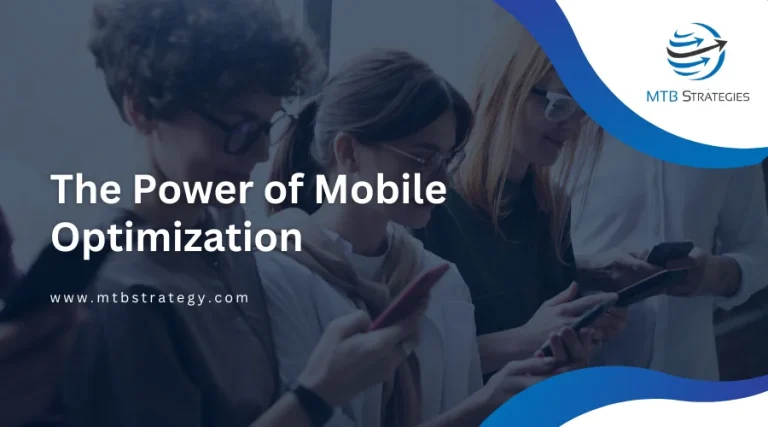Marketing strategies have always played an integral role in the success of any business. These strategies are responsible for driving sales and bringing potential customers to a company or a brand.
With the introduction of new technologies and platforms, marketing trends are constantly evolving. Traditional marketing has ruled the advertising world in the past, but digital marketing has taken over in recent times.
Most business owners struggle to choose between traditional marketing and digital marketing strategies when it comes to presenting their products to prospective customers. Conventional marketing employs older and more traditional tactics, whereas digital marketing employs newer strategies such as social media platforms and digital adverts to catch the audiences’ attention. The million-dollar question is, which one is superior?
This article will cover several aspects of digital and conventional marketing tactics to help you grasp the differences between them.
What is Traditional Marketing?
Traditional marketing refers to marketing practices that don’t rely on the internet and reach the audience offline.
Traditional marketing has been in use for decades, and it’s the most recognizable form of marketing, including the advertisements that we see and hear every day.
Companies that engage in conventional advertising devote a lot of effort and energy to developing successful marketing campaigns that drive sales and generate significant revenue.
Some traditional marketing methods include billboards, flyers, tv commercials, radio commercials, magazine ads, and newspaper ads.
Even though traditional marketing has been outpaced by digital marketing in many areas, it is still beneficial in enhancing your brand recognition and sales. Furthermore, conventional marketing allows you to reach a diverse audience and catch your customers’ attention more effectively.
What is Digital Marketing?
Digital marketing is a relatively new method of promoting a company. It involves promoting products or services using the internet and digital media platforms. Brands can connect with prospective customers on multiple digital channels by implementing various digital marketing strategies.
No matter what products or services you offer as a brand, digital marketing is productive for all kinds of businesses. It allows you to gauge the success of your marketing campaigns instantly with the help of tracking systems and analytics. Another advantage of digital marketing is its inclusiveness, enabling the brands to build a solid customer base encompassing different demographics.
The most prevalent digital marketing methods include:
- Search Engine Optimization (SEO)
- Pay-Per-Click Advertisement
- Social Media Ads
- Email Marketing
- Content Marketing
- Influencer Marketing
Pros & Cons of Traditional Marketing
Many people consider traditional marketing obsolete or irrelevant with the introduction of digital marketing. However, most of its tactics are still thriving.
Here are the pros and cons of traditional marketing to help you determine if it is suitable for your company or not.
Pros
- Traditional marketing is quite effective in building a substantial local audience. If you own a small business, billboards and fliers are a better way to catch your audience's attention.
- Ads on TV and radio can't be turned off; they repeatedly play to remind your audience of your business.
- Traditional marketing can benefit your company if you are targeting an older demographic. The majority of senior citizens spend a significant amount of time watching television and reading newspapers. Thus, catching their attention through television commercials and print advertisements would be easy.
Cons
- Due to a lack of capital, small businesses and startups often find it challenging to compete with larger enterprises using traditional marketing strategies.
- Traditional marketing is challenging to quantify. There is no obvious way to track the source of leads using conventional methods unless you question a client that visits your brand. Brand trackers are often used to measure the campaign's success, but they aren't nearly as precise and effective as the tools available for digital marketing.
- As the audiences are not clearly defined, traditional marketing is far less effective in targeting the right people when compared to digital marketing and can increase marketing costs.
Pros & Cons of Digital Marketing
Digital marketing is highly beneficial in certain aspects of marketing but not that impressive in others.
Pros
- Digital marketing offers unrivaled reach and promotes your products across the globe.
- Even if you are a startup or a new brand with no clue about your target audience, digital marketing allows you to extract the relevant data and determine the right audience for your brand.
- Result tracking is relatively straightforward for digital marketing campaigns.
- It's a cost-effective technique that allows you to reach prospective customers and generate excessive revenue.
- Digital marketing increases conversion rates. When you create compelling content or engaging advertisements for your customers, there is a huge possibility that they will instantly buy your products.
- Digital marketing allows you to build a solid customer base, enhance brand loyalty, and increase brand awareness.
Cons
- Users can block or skip ads on digital media platforms, making your campaign less effective.
- As digital marketing methods are constantly evolving, you must adapt quickly. Otherwise, you will risk losing out to competitors.
- You need the right people with the proper skill set to run a successful campaign for every digital media platform.
- Optimizing digital advertising campaigns and creating engaging marketing content can be extremely time-consuming.
- While digital marketing allows you to access a worldwide audience, it also exposes you to global competition, making it challenging to stand out from the crowd and grab the customer's attention.
What Do the Stats Say?
Given the present boom of digital marketing, especially in the United States, it won’t be long until digital ad expenditure overtakes conventional advertising such as television commercials.
60 % of marketers in various sectors have already turned their focus to digital marketing. Here are some additional figures to assist you in comprehending the rise of digital marketing.
- LinkedIn is used by 94 percent of B2B marketers for marketing purposes.
- By 2019, mobile will account for more than 70% of digital ad spending.
- Social media is the most successful content marketing approach for 90% of B2C organizations.
- Before purchasing a product or service, more than 80% of buyers conduct research online.
- Nearly 60% of adults in the United States use Facebook regularly.
You must evaluate the relevance of digital marketing irrespective of the nature of your business. Otherwise, you risk losing to competitors using the most up-to-date digital marketing techniques.
Which One Is Better?
Well, it literally depends on what type of business you are running. Both marketing methods have their upsides and downsides. The key is to comprehend your individual marketing goals, financial constraints, and target demographic, making it easy for you to choose the right option for your brand.






